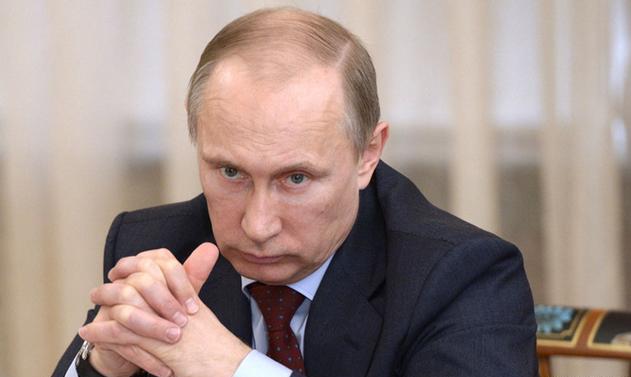Europe
Putin outlaw fake news, disrespect against Russian state

Russian President, Vladimir Putin, on Monday outlawed expressions of disrespect against the state, as well as publications that are “knowingly false.’’
Using the internet to express “clear disrespect to the state’’ is punishable by a fine and possible jail time, according to legislation posted on the government’s legal information website.
Publishing “knowingly false, publicly significant information’’ is punishable by a fine of up to 1.5 million roubles (23,000 dollars), the legislation says.
Putin’s own human rights council last week condemned the parliament’s attempt to create such legislation, saying it would violate Russia’s constitution.
Such legislation did “not comply with criteria for limiting the constitutional rights and freedoms of citizens,” the Kremlin’s Council for Civil Society and Human Rights said in a statement.
Russia’s communications watchdog, Roskomnadzor, has been tasked with recommending that internet providers block certain material that has raised concerns for the state.
Russia’s Foreign Ministry has for the past two years dedicated a section of its website to shaming publications deemed as having false information, with a big red stamp of the word “fake.”
The section comprises more than 60 articles, including by major English-language news outlets such as The Financial Times, CNN, Bloomberg and The New York Times.
Similarly, Putin on Monday visited Crimea to mark the fifth anniversary of the day that Russia annexed the region from Ukraine, while Western powers, particularly the U.S., reiterated their condemnation of the annexation.
Putin participated in festivities, including an inaugural ceremony for an electrical power plant, Balaklavskaya, in Sevastopol, state media reported.
Russia previously struggled to provide sufficient electrical power for the region.
“Today yet another important step has been made to strengthen the energy security of the Crimean Peninsula, as well as the entire Russian Federation, for the development of the economy and infrastructure of the region,” Putin said in televised comments.
Russian forces occupied key parts of Crimea, the long-time host of a major Russian naval base on the Black Sea, in response to Kiev ousting its pro-Russian president in a pivot towards the West in early 2014.
A pro-Russian separatist rebellion meanwhile erupted in Ukraine’s two eastern-most regions, Donetsk and Luhansk.
About 13,000 people have been killed in the ensuing conflict with the Ukrainian military.
The speaker of Russia’s upper house of parliament, Valentina Matviyenko, marked the anniversary of the annexation in a commentary published on Monday in the Russian newspaper Izvestia.
“There is a growing understanding in the world that Crimea is a part of Russia,” Matviyenko said.
“With every year there is an increasing number of foreign politicians, public figures and journalists, who visit the peninsula.’’
The vast majority of countries have not recognised the Russian-supported referendum for the annexation as legitimate.
Kurt Volker, the U.S. special representative for Ukraine negotiations, called the anniversary a “sad day” and reiterated U.S. opposition to the annexation.
“This is an illegal occupation, an illegal seizure of territory and we fundamentally stand behind Ukraine in insisting that its territorial integrity be restored,” Volker said.
Western powers, including the EU and the U.S., have imposed numerous economic sanctions against Russia since the annexation.
Russia has followed suit with retaliatory sanctions.
The value of Russia’s rouble currency has about halved in comparison with the U.S. dollar since the annexation.
Volker expressed frustration over what he called the “lack of political will’’ on Russia’s part in stalled negotiations to end the conflict in eastern Ukraine.
He said a framework for finding an agreement is in place.
He also urged Ukrainians to “vote [with] their conscience’’ in the upcoming presidential election and again called on Russia to release Ukrainian sailors captured in November, saying their detention is “outside international law.”




 Davido's Net Worth & Lifestyle
Davido's Net Worth & Lifestyle 
